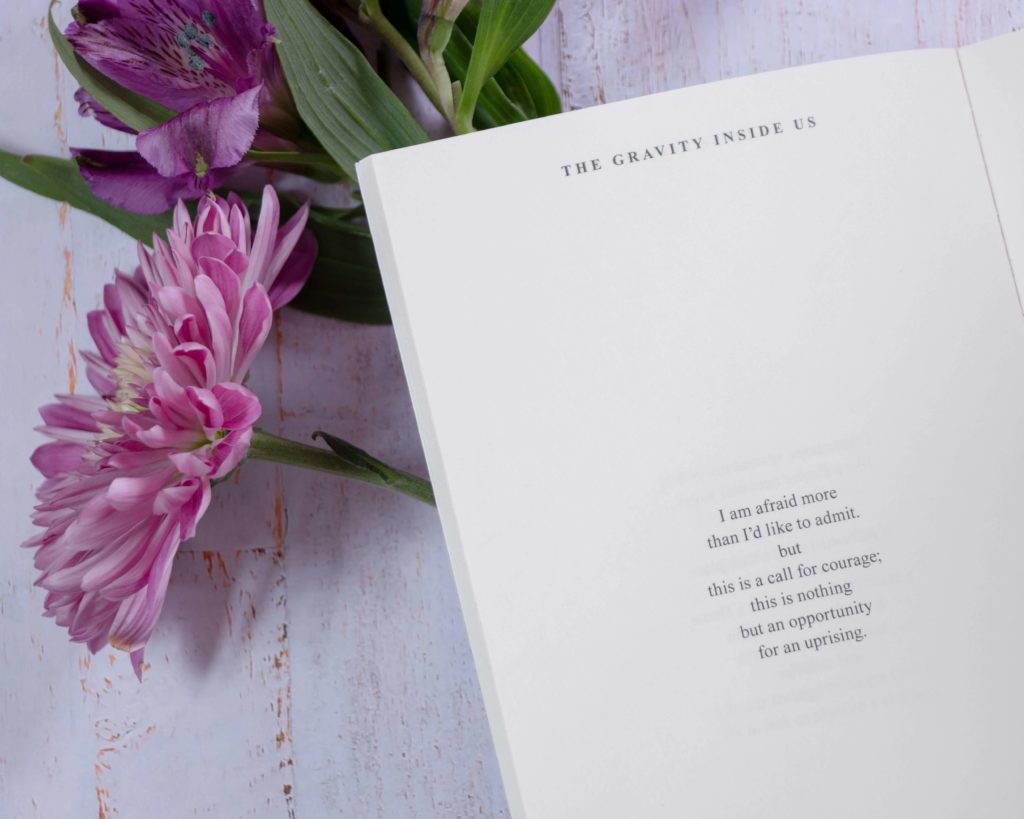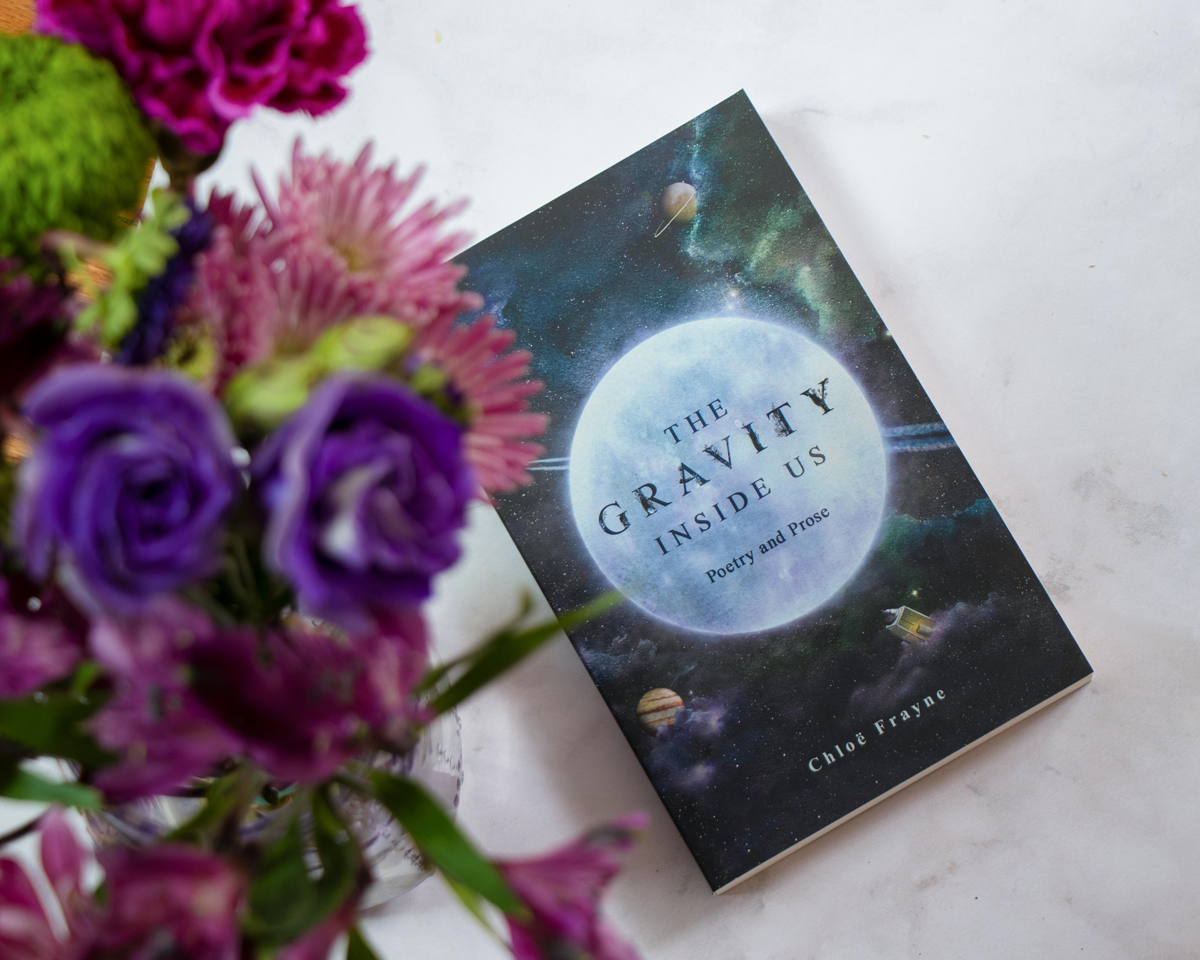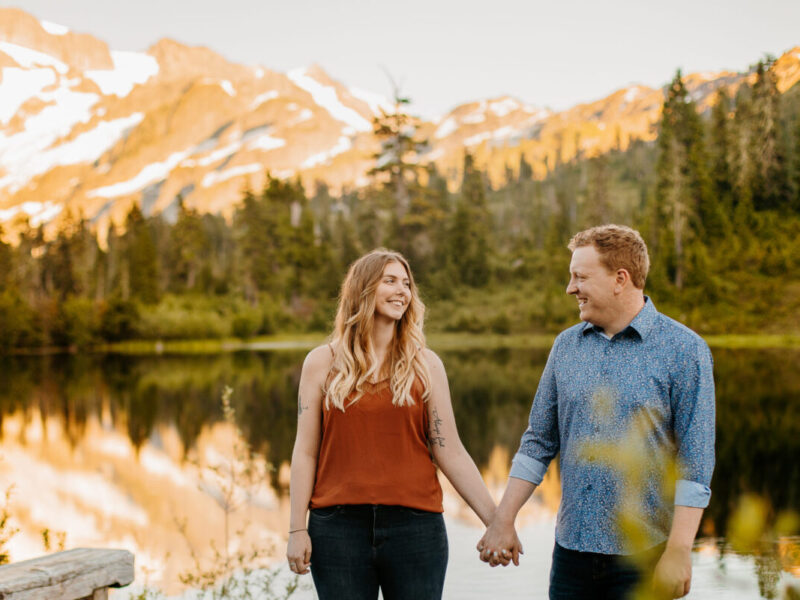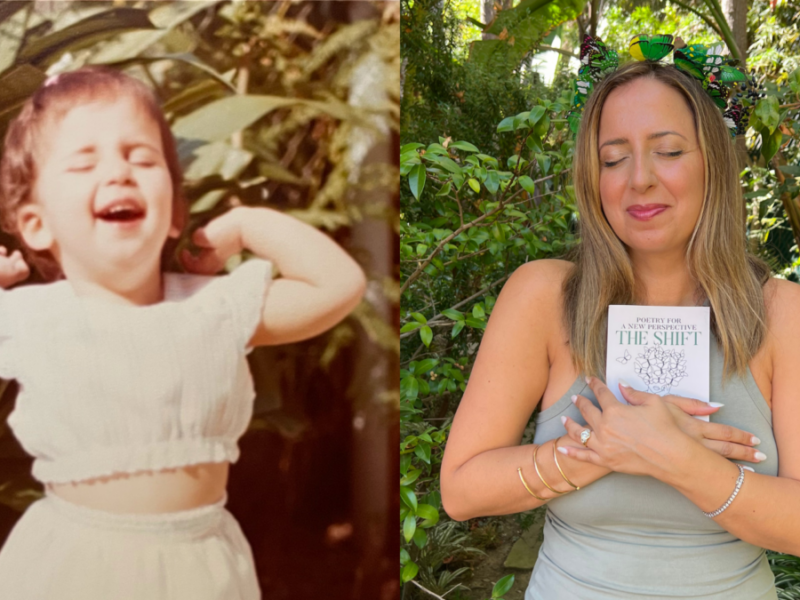The Purpose of Poetry with Chloë Frayne
Chloë Frayne, an LGBTQI poet from South Australia, writes from her experiences with love, long-distance relationships, traveling, healing, hope, and adventure. Frayne is the author of two self-published poetry books, and this year she is releasing her first traditionally-published collection, The Gravity Inside Us (Andrews McMeel Publishing, available now). To celebrate both her new release and National Poetry Month, we sat down with Frayne to talk about the purpose behind her work, her writing process, and the meaning of success.

Read Poetry (RP): What do you feel is the purpose of your poetry?
Chloë Frayne (CF): I write on the bones of hope and love; sometimes they break. The purpose of my poetry, for me, is to love people. Even grief is an act of love. I think the purpose of my poetry for other people is to find themselves in any of that and feel even a little less alone.
RP: In what ways does poetry give you purpose?
CF: I’ve always been a really intense person and that found a home in poetry. It was the first time I really felt like I could tell the truth about how I felt and not be scared it would be too much. Writing brought me to some of the people I’ve loved most in my life. I’ve always found my deepest purpose in loving, so I built a life out of it. Knowing that I’ve connected to someone and made them feel seen, understood, or loved—and knowing that I’ve built a safe space for other LGBTQI people to feel represented—brings so much to me.
RP: Your newest collection, The Gravity Inside Us, was just released. What inspired you to write this new collection? And what lessons did you learn in the making?
CF: When I first started putting together The Gravity Inside Us, I had split my life between an ocean. I was living back and forth between the US and Australia, so every relationship in my life carried an element of distance. I learned a lot about what it is to really love someone (in any context), thought a lot about what kept pulling me in either direction, and began writing this collection about fate.
RP: How was the journey of writing The Gravity Inside Us different from (or similar to) your previous collections, Into Oblivion and Letters, and Why They’re All For You?
CF: This was my first traditionally-published book, so the processes of writing them were very different! I put together my first two books using InDesign and self-published them, so I had complete control (and responsibility) from start to finish. The Gravity Inside Us was picked up by Andrews McMeel and has been a creative collaboration, which has been a beautiful experience. I’ve been writing and working on this book for much longer than I did the two before it so there’s a lot of growth throughout.
RP: Did you have a theme for the collection in mind before you began, or did the meaning emerge as you worked?
CF: I had the concept in my head and heart around the same time as I was releasing Into Oblivion. The Gravity Inside Us has actually had its title for years! This is a theme I’ve always wanted to and felt I needed to write about, but (as with anything) I think it further emerged the deeper I got into it.
RP: Did publishing your first book change your process for writing? If so, how?
CF: Absolutely! I released my first book with 1k followers and it wasn’t until I put the work into it and held it in my hands that I started to really believe I could make poetry one of my life’s works. I started setting time aside every day to dedicate to just being creative—even if I didn’t write, it cultivated the habit—and posting work twice a day.
RP: What does literary success look like to you?
CF: The first time I held my book, the first time I saw it on a shelf—those were dreams come true! On a more fundamental level, every message and comment from someone telling me my work means something to them, made them feel less alone—that’s success to me. To know and be reminded that I wrote something that could reach out to someone, find them, turn a light on, or make them feel loved, is a success.
RP: What is one thing you hope readers take away from your latest book?
CF: I hope people find a deeper understanding of whatever it is we carry that pulls us in and out of place, and speaks so insistently of fate. I hope it encourages them to listen to the pull; to follow their heart, their gravity.
RP: Can you share one writing prompt for fellow writers of poetry?
CF: Write about your worst day, and then write about your best. I think sometimes we get so lost in the dark that we forget how much light there’s been. It’s a beautiful reminder that it will, surely, find us again.




